Are you dreaming of a beautiful, sturdy fence that enhances your outdoor space? Choosing the best wood for DIY fences is crucial, not just for aesthetics but for durability and maintenance too. In "Discover the Best Wood for DIY Fences: Build Your Dream Fence Today!", we’ll guide you through the top wood options, helping you make informed choices that suit your style and budget. Whether you're a seasoned DIYer or a first-timer, mastering this knowledge will empower you to create a fence that stands the test of time and elevates your property’s charm.
Opening Hook: The Importance of Choosing the Best Wood for DIY Fences
When it comes to building a fence, the type of wood you choose can significantly impact the overall look, durability, and maintenance of your fence. The best wood for DIY fences not only enhances the aesthetic appeal of your property but also ensures that your fence can withstand the elements and last for years to come. Selecting the right wood is essential for achieving a balance between cost, longevity, and visual appeal.
What You'll Learn About the Best Wood for DIY Fences
- Understanding different types of wood for fencing
- Factors to consider when choosing the best wood for DIY fences
- Top wood choices for DIY fences
- What grade of lumber is used for fences?
- What type of wood fence lasts the longest?
- What is the most affordable wood for a fence?
Understanding Different Types of Wood for Fencing
There are various types of wood available for fencing, each with its unique characteristics. Understanding these differences is crucial in selecting the best wood for DIY fences. Common options include cedar, pine, redwood, and cypress, each offering different benefits in terms of durability, resistance to decay, and aesthetic appeal.
Factors to Consider When Choosing the Best Wood for DIY Fences
When selecting wood for your fence, consider factors such as local climate, wood durability, maintenance requirements, and cost. For instance, if you live in a region prone to high winds or heavy rainfall, you may want to opt for a more durable wood type that can withstand these conditions. Additionally, consider the wood's natural resistance to rot and insects, which can significantly affect its longevity.
Top Wood Choices for DIY Fences
Cedar: The Classic Choice for Fencing
Cedar is a popular choice for fencing due to its natural resistance to decay and insects. Its beautiful reddish hue adds a warm touch to any outdoor space, making it an excellent option for those looking to enhance their curb appeal. Cedar wood is also lightweight and easy to work with, making it ideal for DIY projects.
Pressure-Treated Pine: Affordable and Durable
Pressure-treated pine is one of the most affordable options for DIY fences. This wood is treated with chemicals to resist rot and insect damage, making it a durable choice for various climates. While it may not have the same aesthetic appeal as cedar or redwood, it offers excellent value for those on a budget.
Redwood: A Premium Option for Longevity
Redwood is known for its stunning appearance and durability. It has a rich color and grain pattern that adds elegance to any fence. Although it is more expensive than other options, its longevity and resistance to decay make it a worthwhile investment for homeowners looking for a premium fencing material.
Cypress: Natural Resistance to Decay
Cypress wood is another excellent choice for fencing due to its natural oils that provide resistance to decay and insects. This wood has a light brown color and a fine grain, making it visually appealing. It is also relatively easy to work with, making it suitable for DIY projects.
Douglas Fir: Strong and Versatile
Douglas Fir is a strong and versatile wood that can be used for various fencing styles. It is known for its durability and resistance to warping, making it a reliable choice for those looking for a sturdy fence. Its light color and straight grain also make it an attractive option for many homeowners.
What Grade of Lumber is Used for Fences?
Understanding Lumber Grades
Lumber grades indicate the quality and strength of the wood. For fencing, it is essential to choose a grade that can withstand outdoor conditions. Common grades for fencing include #1 and #2 grades, with #1 being the highest quality. Understanding these grades will help you select the right wood for your fence.
Choosing the Right Grade for Your Fence
When selecting lumber for your fence, consider the grade that best suits your needs. Higher grades may be more expensive but offer better durability and appearance. If you are on a budget, #2 grade lumber can still provide a sturdy fence while saving you money.
What Type of Wood Fence Lasts the Longest?
Comparing Durability of Different Wood Types
When it comes to longevity, cedar and redwood are often considered the best options due to their natural resistance to decay. Pressure-treated pine can also last a long time if properly maintained. Comparing the durability of different wood types will help you make an informed decision for your fencing project.
Maintenance Tips for Longevity
To ensure your fence lasts as long as possible, regular maintenance is essential. This includes sealing the wood to protect it from moisture, inspecting for signs of damage, and treating it for pests. By taking these steps, you can extend the life of your fence and maintain its appearance.
What is the Most Affordable Wood for a Fence?
Cost-Effective Options for DIY Fences
When looking for affordable wood options, pressure-treated pine is often the best choice. It provides a good balance between cost and durability, making it suitable for many homeowners. Other cost-effective options include spruce and fir, which can also be used for fencing.
Balancing Cost and Quality
While it may be tempting to choose the cheapest option, it is essential to balance cost with quality. Investing in higher-quality wood can save you money in the long run by reducing maintenance and replacement costs. Consider your budget and the long-term benefits of each wood type when making your decision.
FAQs About the Best Wood for DIY Fences
What kind of wood is best to build a fence?
The best wood for building a fence includes cedar, redwood, and pressure-treated pine, each offering unique benefits in terms of durability and aesthetics.
What grade of lumber is used for fences?
Common grades for fencing include #1 and #2 grades, with #1 being the highest quality and most durable option.
What type of wood fence lasts the longest?
Cedar and redwood are known for their longevity due to their natural resistance to decay and insects.
What is the most affordable wood for a fence?
Pressure-treated pine is often the most affordable option for DIY fences, providing good durability at a lower cost.
Key Takeaways on the Best Wood for DIY Fences
Choosing the best wood for DIY fences is essential for creating a durable and visually appealing fence. Consider factors such as local climate, wood durability, and maintenance requirements when making your selection. Popular choices include cedar, redwood, and pressure-treated pine, each offering unique benefits. Regular maintenance will help extend the life of your fence, ensuring it remains a beautiful addition to your outdoor space.
Conclusion: Building Your Dream Fence with the Best Wood
In conclusion, selecting the right wood for your DIY fence is crucial for achieving a balance between aesthetics, durability, and cost. By understanding the different types of wood available and considering factors such as local climate and maintenance, you can make an informed decision that will enhance your outdoor space for years to come. Whether you choose cedar, redwood, or pressure-treated pine, your dream fence is within reach!
Call to Action: Start Your DIY Fence Project Today!
Ready to build your dream fence? Start your DIY project today by selecting the best wood for DIY fences that suits your style and budget. With the right materials and a little effort, you can create a stunning fence that enhances your property and provides lasting value. If you're considering professional help, check out our article on Fence Installation: What You Need to Know Before Hiring an Fencing Contractor for expert tips.

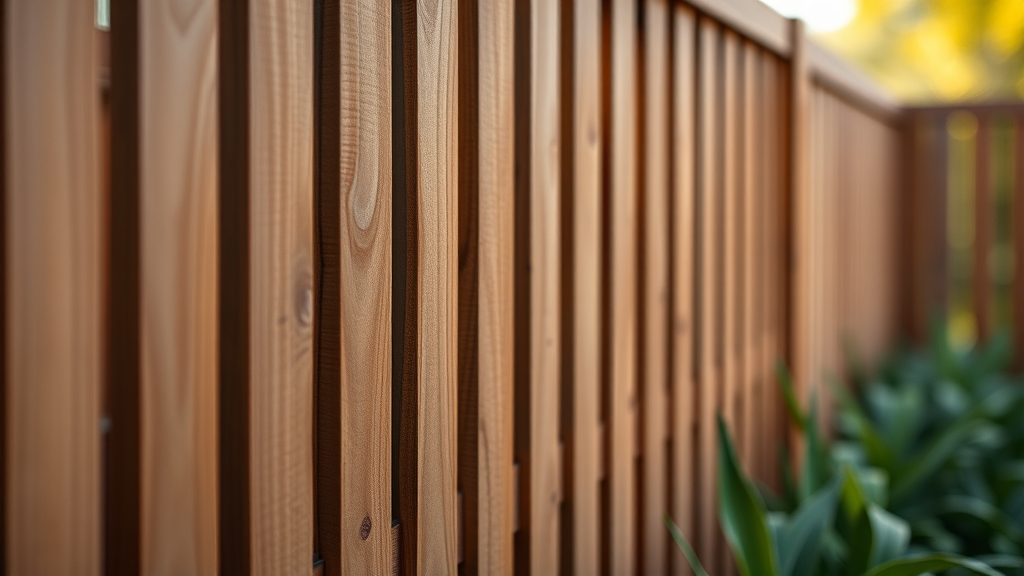

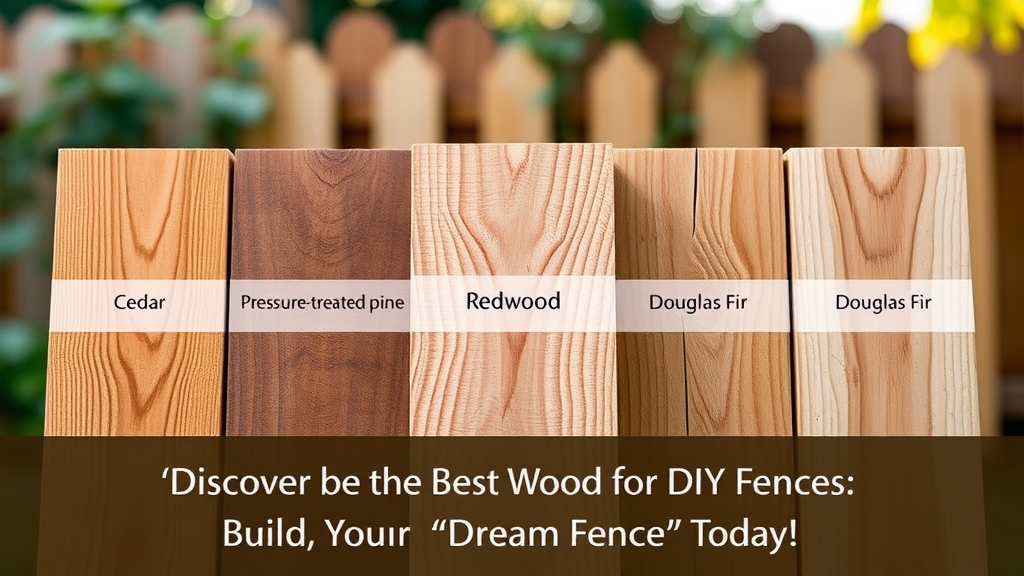
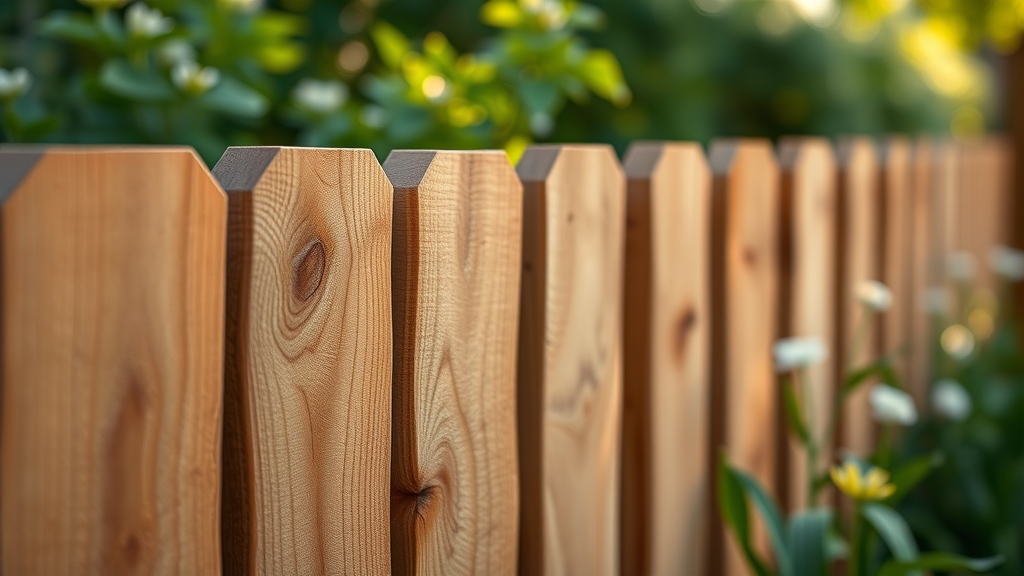
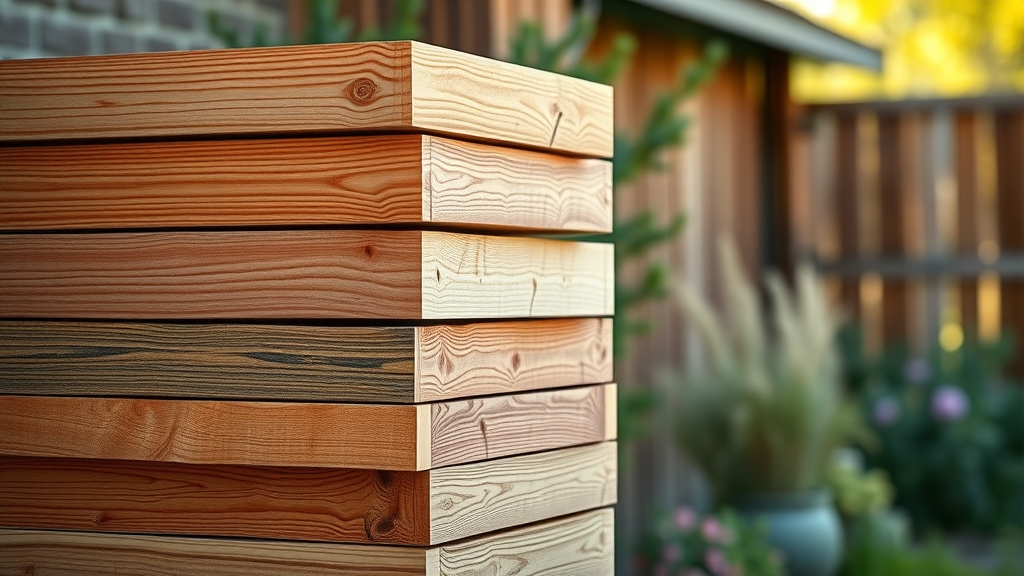
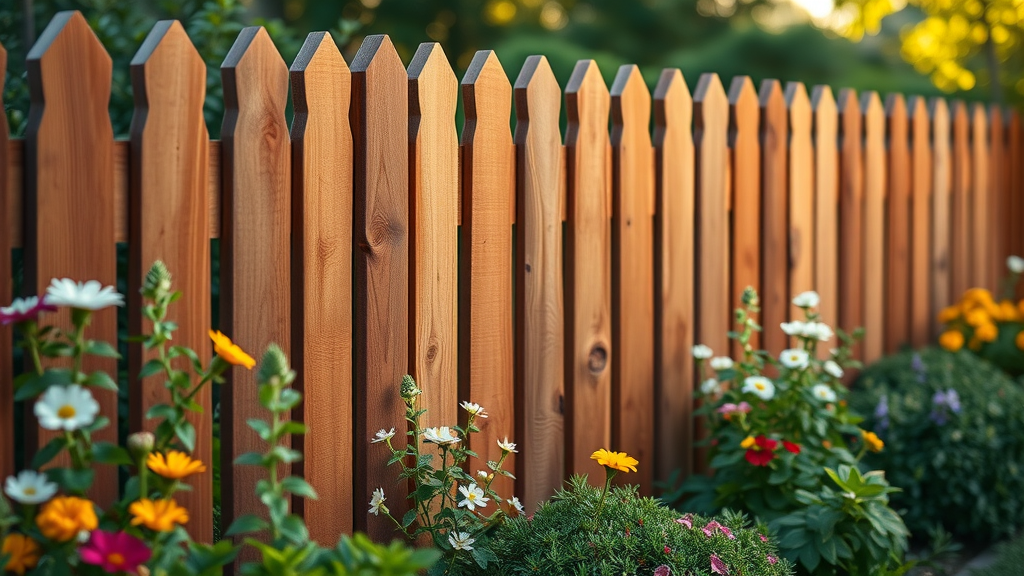
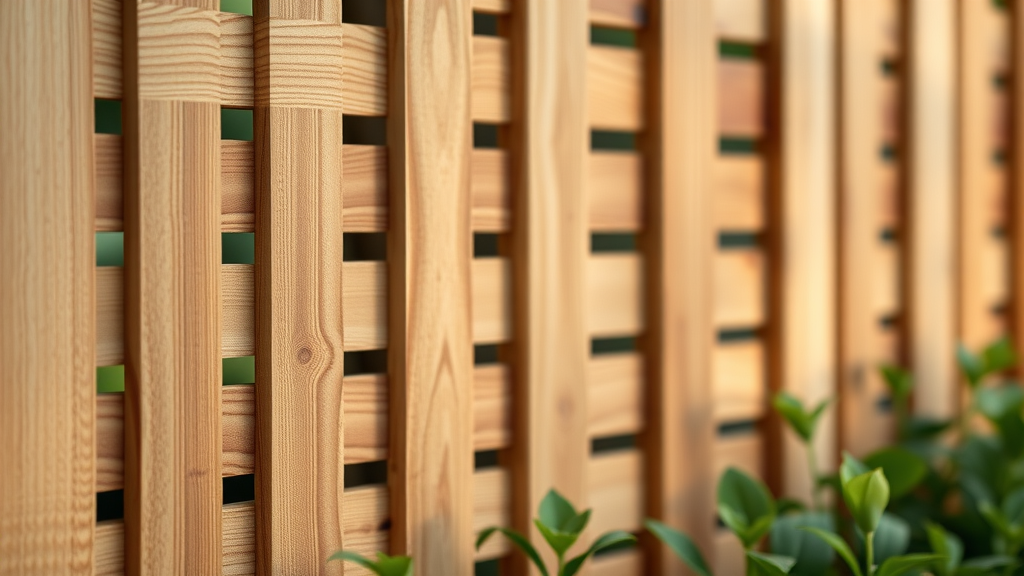
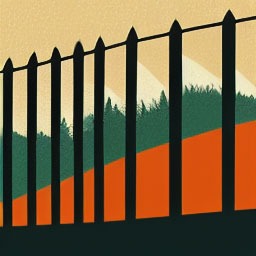

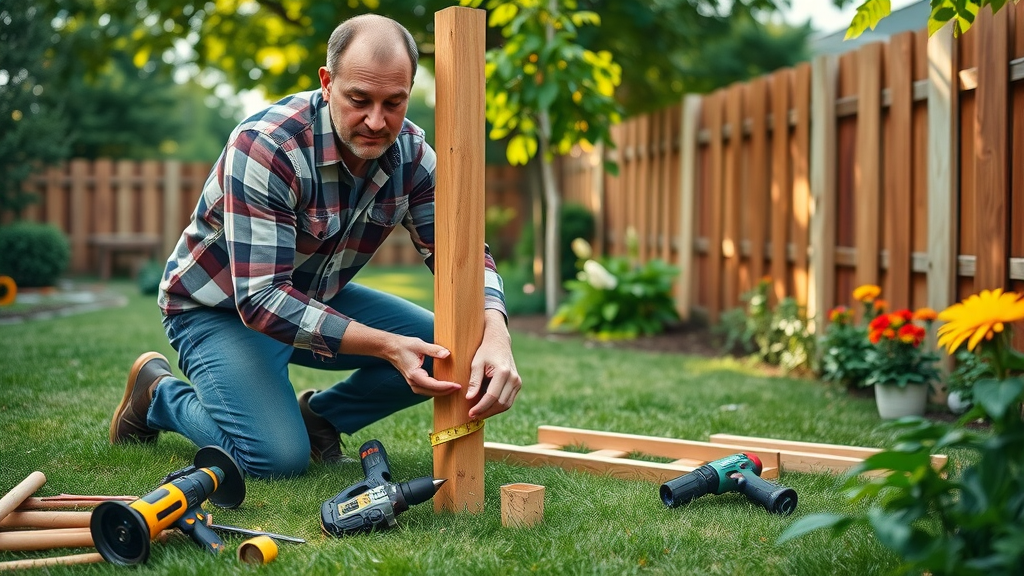
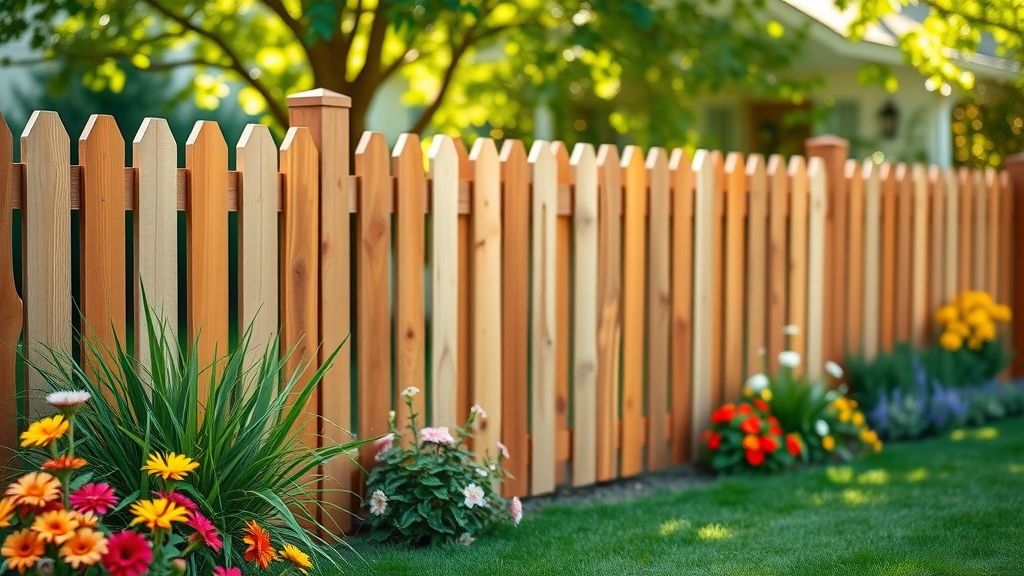
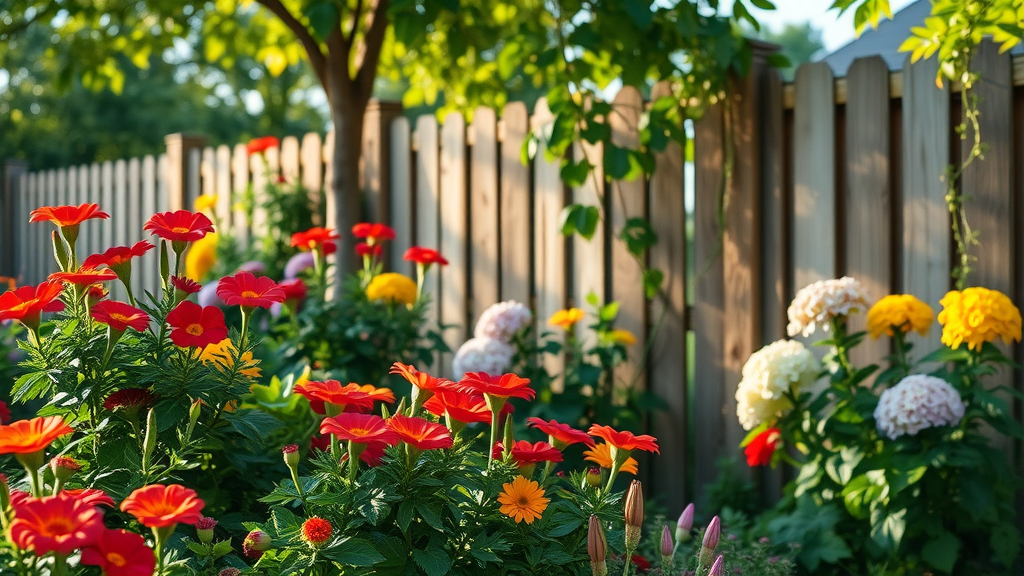
Write A Comment